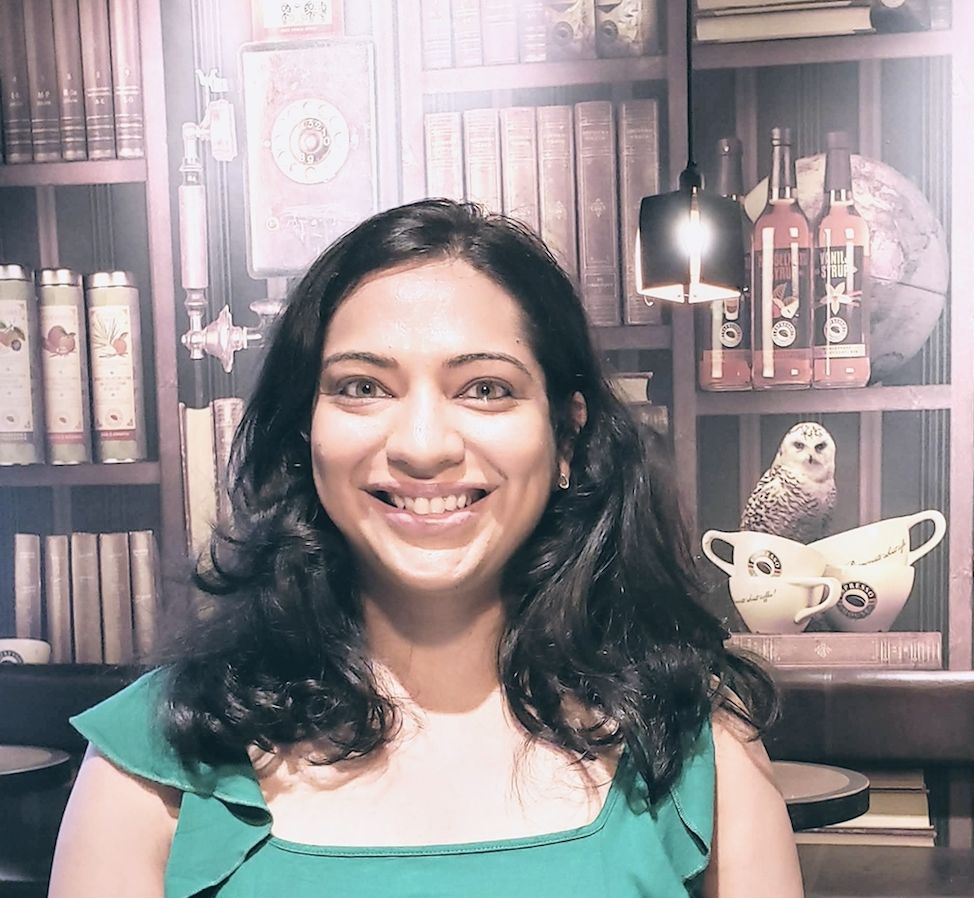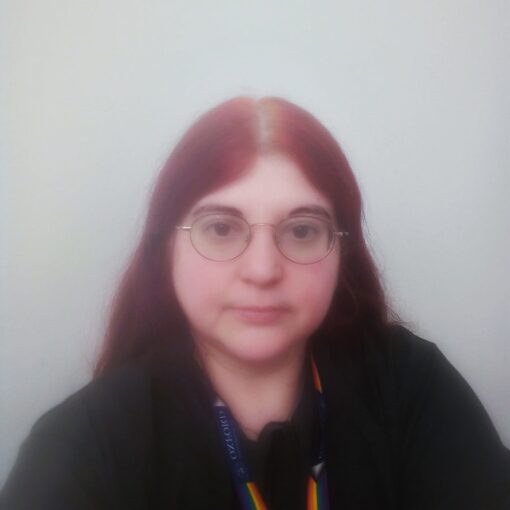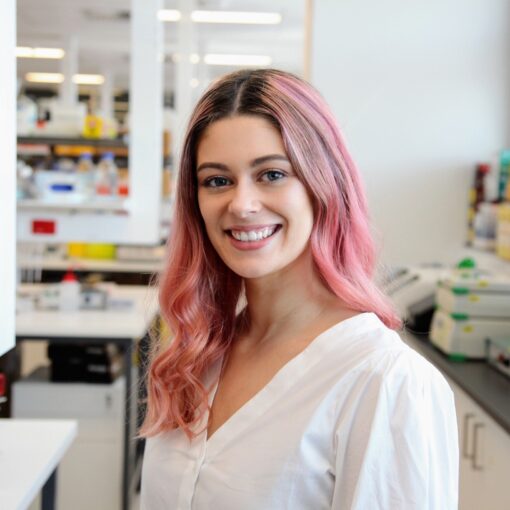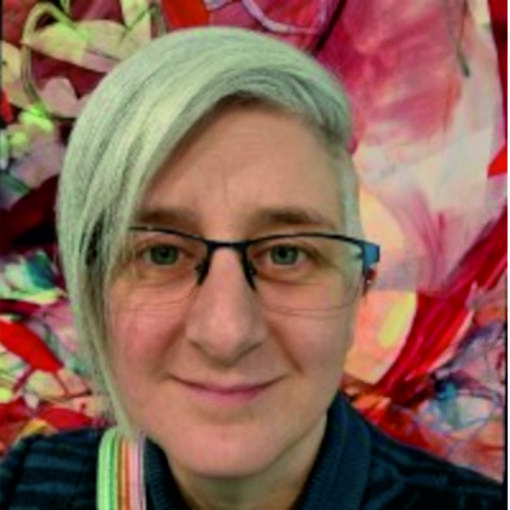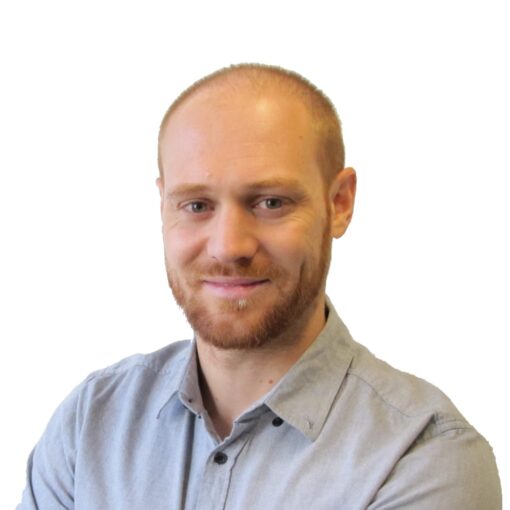Ph.D. in Neuroscience, University of Pennsylvania (2011)
| Associate Medical Director | |
|---|---|
| VMLY&R | |
Year entered into a non-academic position: 2019
Job highlight: Developing materials on behalf of pharmaceutical companies for doctors, nurses, and other healthcare professionals to educate them about new therapies that will benefit patients
My research training set me up to…communicate science effectively to different audiences, evaluate clinical trial data and identify the therapeutic landscape for various disease states
Left academia after: 7 years 7 months of postdoctoral work
What’s your background?
For my Ph.D., I worked on brain development in zebrafish; specifically, I identified signalling pathways required for olfactory circuit development. My postdoctoral research focused on identifying factors to improve memory and axon regeneration upon injury in aging C. elegans.
Why did you move away from academia?
I was growing dissatisfied with the lack of job security and work/life balance in academia, and also the fact that there was no obvious way in which my research was impacting human health. Due to this, I dabbled in biotech/pharma consulting during my Ph.D. and postdoctoral years. I also attended countless career events and talked to people with Ph.Ds employed in various sectors. When the time came to finally make the switch, I was fairly prepared, and it took me less than 2 months to find a job in a new field!
Is there anything you miss about academia?
I miss doing things on my own schedule.
How did you get this job?
When I decided to move into medical communications, my strategy was to apply through job ads, but also talk to people in my network from grad school and other postdocs, to see if there were any vacancies in the companies they were working for. I was referred to the hiring manager for the job that I have now by a former colleague at Princeton University. The hiring manager called me for a phone interview, which was followed by a writing test (making a slide deck based on a clinical trial publication), and an in-person interview at the office. I think the best thing I did during job hunting was talking to people (and asking a LOT of questions) – this greatly reduced my anxiety about what to expect during the interview, what exactly the job entails, what a typical day looks like, etc.
What motivated you to/why did you choose the sector you transitioned into?
The aspect of research that I loved the most was the storytelling – making presentations for different audiences was fun for me! I was amazed to learn that this is an actual job description in medical education agencies, and I would get to create scientific materials to educate healthcare professionals and help new therapies get to patients.
Did you think you had the skills required for your current position before you started? Were you right?
When I started this job, I was told that I would be working in oncology – I have no prior experience with cancer research, so I was a bit apprehensive. I soon realized though, that I did in fact have all the skills necessary to quickly learn about a new field, interpret clinical trial data, and generate educational and promotional materials.
How did your PhD prepare you for your current job? For example, what were the transferable skills that you developed during your PhD that are most relevant to your current job?
My academic training gave me the tools to do literature research, collate data, synthesize scientific concepts and present them effectively. I also learned to be efficient, organized and meet deadlines. All these skills are essential for my current job.
Can you describe a typical week in your job?
The week really depends on the ongoing projects, which can range from working on slide decks and videos, attending client meetings to figure out strategic directions and get feedback on projects, and travelling to attend advisory boards and conferences.
What’s the workplace culture like? Please include comments on work-life balance, flexibility?
The workplace culture is relaxed and flexible. Some people work remotely on a regular basis, while others work from home once a week. Obviously, things get not-so-relaxed when there are client deadlines to be met, but that’s not a routine occurrence. The option to work remotely is truly great for work-life balance.
Do people with a PhD frequently get hired in the company/sector?
Yes, in fact, a Ph.D. (or other advanced degree like PharmD) is required for medical communications roles.
What are your favourite parts of your job?
I have really enjoyed learning about oncology, the therapeutic landscape and patient perspectives.
I can also see that my work directly influences the health outcomes of patients, and that is very gratifying.
As far as the actual work goes, I love making slide decks and getting creative with data presentation. I also love attending advisory boards, because I get to learn the real-world implications of a disease state, and the patients’ unmet need. From a more practical perspective, I like the fixed hours of the job – not having to go into lab on weekends is great!
Do you have any advice for current graduate students and postdocs considering a career outside of academia?
I would say – do some soul searching and figure out what aspect of academia you love. Then start talking to people in your university network (LinkedIn is great to reach out to people). Use your research skills and investigate opportunities beyond the bench, attend career events and explore opportunities to expand your skill set. As an example, although I didn’t end up as a consultant (I don’t enjoy travelling as frequently as consultants do), my experience with biotech consulting was invaluable in giving me insights into the pharma industry, and I was asked about it during my job interviews – it clearly gave me a leg-up.
What do you know now, that you wish you’d known when exploring a transition?
I felt isolated when I was exploring a transition, but now I realize that there are tons of ex-academics leading fulfilling work lives in a variety of sectors. So there was nothing to be afraid of, really!

My company is a full-service, scientific and healthcare communications company. It used to be known as Precept medical communications (http://www.preceptmedical.com/), and is now a part of VMLY&R, a global full-service marketing agency. We support the pharmaceutical and healthcare industries, and our solutions encompass the full life cycle of the product – from disease awareness and issues-based to branded – from early clinical development through patent expiration. The scientific team at VMLY&R is located at Parsippany, NJ and New York city.
Details of current internships/work-shadowing opportunities:
We are hiring Scientific Associates, here is a short description: The Scientific Associate is responsible for providing strategic insight and medical direction based on thorough knowledge of Client’s product and therapeutic area. The Scientific Associate will research, write, develop, and deliver, within budget and on time, strategic and scientifically accurate materials for a variety of healthcare audiences. More information at: https://jobs.jobvite.com/vmlyr/job/osCqbfwp

